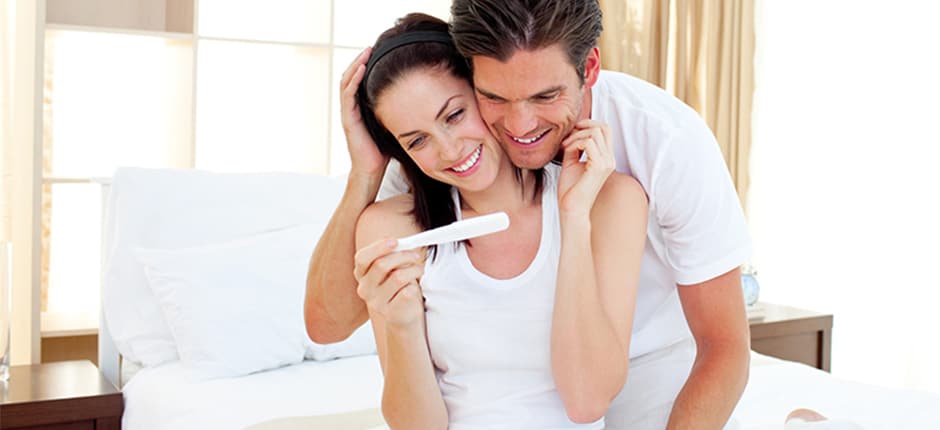Finding out you’re Pregnant

Am I pregnant?
Early signs of being pregnant
For many women the classic ‘missed period’ is often the first sign of being pregnant – but there are other early signs of pregnancy to look out for, including:
- Sore breasts (tenderness and enlargement)
- Being tired
- Having to pee (urinate) more often – particularly at night
- Strange tastes and food cravings
- Morning sickness (feeling nauseous and vomiting) – at any time of the day or night.
Not everyone experiences the same symptoms. You may experience all or only a few of these early changes.
Pregnancy tests
Many of these early symptoms can also be caused by other illnesses or stress – so once you suspect you might be pregnant the next step is to have a pregnancy test. You can buy a home pregnancy kit (urine test) from a pharmacy or let your GP check things out.
Home pregnancy tests can vary in sensitivity. You must follow the manufacturer’s instructions correctly and not use the test too early – they’re usually best used 1-2 weeks after your period was due.
Always confirm your home kit results with your GP who can test your blood for a more accurate result.
Seeing your GP
When you first find out or think you may be pregnant it’s a good idea to book an appointment with your GP to:
- Organise routine pregnancy and other health tests – including a blood test to confirm the pregnancy and estimate how far the pregnancy has progressed.
Once your GP has confirmed you’re pregnant you can:
- Discuss your pregnancy care options, such as which healthcare providers will care for you and where you would like to give birth
- Talk through any questions or concerns you may have.
Calculating baby’s due date
The average length of a pregnancy is 40 weeks – measured from the first day of your last period. Your doctor or midwife can help you calculate the due date and there are lots of online pregnancy calculators too.
What do I do next?
Most women go through a range of emotions when they first find out they’re pregnant – you may feel excited and nervous all at the same time! So here are a few things to kick-off your pregnancy to-do list:
Sharing the news
Can’t wait to announce the good news or prefer to leave it a while? There’re no set rules – just to do what’s right for you and what you’re most comfortable with.
Looking after yourself and baby
It’s important to take care of yourself especially when you’re pregnant. Eating well, keeping physically active, not smoking and not drinking alcohol all have benefits for both you and your baby.
For more information, see What to Eat and Foods to Avoid; Exercise for Mums and Smoking and drinking.
Getting support
Don’t be shy to talk about anything that’s worrying you. Your doctor or midwife are there to help you with practical and emotional support during your pregnancy and the birth of your baby.


